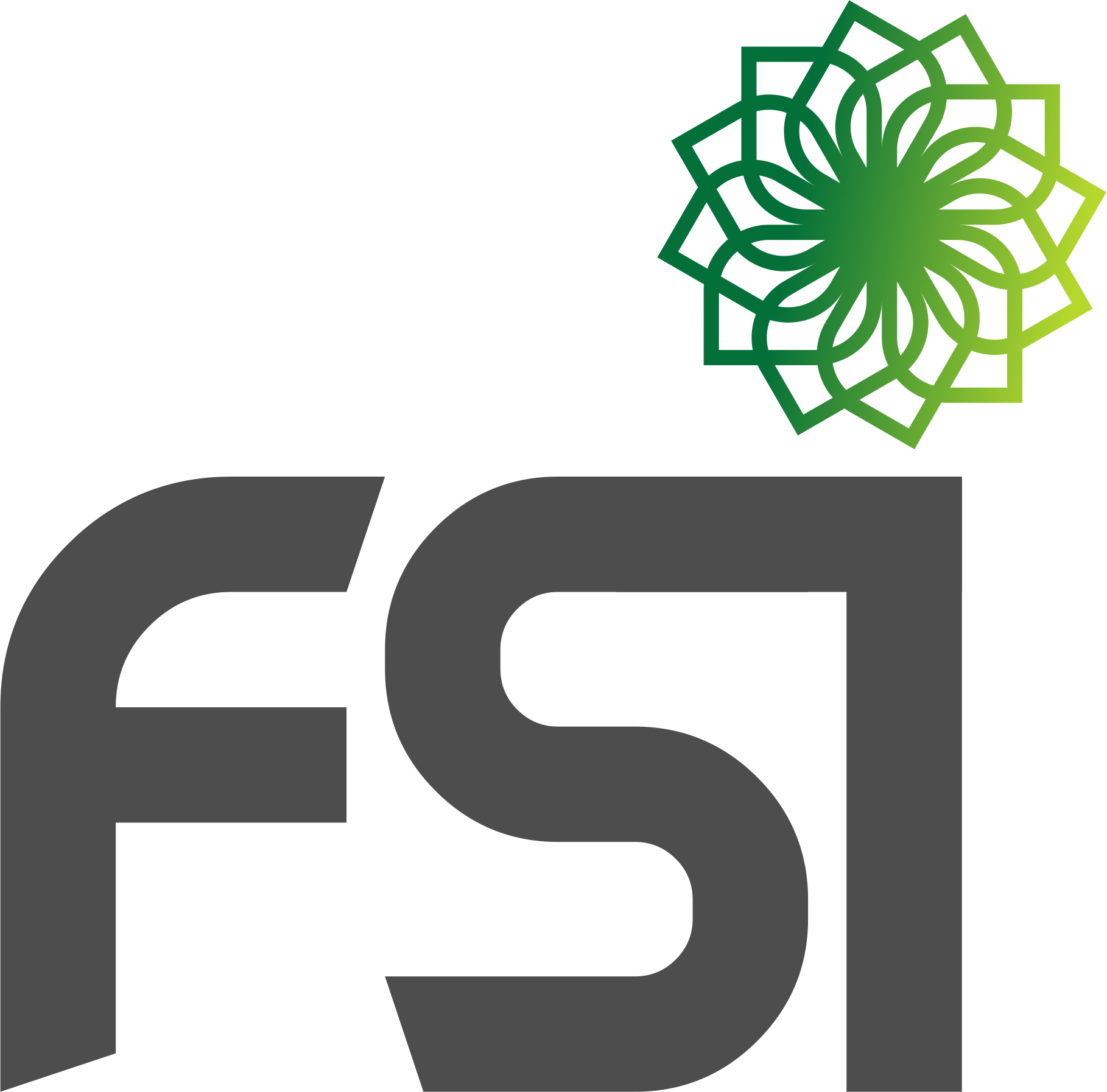The FSI Innovation Showcase Contest is a hackathon designed to tackle challenges that affect women, youth and MSMEs in the agriculture, health and financial services sectors of the economy whilst identifying innovative ways to aggregate the value chain opportunities.

PROBLEM STATEMENT – FSI Hackathon (FSI INNOVATIVE SHOWCASE CONTEST
- IDEAL
An integrated and interconnected ecosystem of supply and demand value chains in the agricultural, health and financial services sector that caters to the needs of women, youths and micro, small and medium enterprises (MSMEs). A proliferation of affordable, inclusive, and innovative solutions that address challenges with retirement savings, insurance, investment, access to healthcare services and agriculture finance that improves the livelihoods of the demography.
- REALITY- Problems in these sectors
Currently, the disintegrated value chains in the agricultural, health and financial services sectors leave an underserved population of women, youths and MSMEs. Furthermore, access to these services and product offerings is limited.
Agricultural Sector
Critical problems in the agricultural sector include poor infrastructure, lack of access to credit and finance, lack of access to technology and the need for coordination between different actors in the value chain. The World Bank's 2018 report on Transforming Agricultural Value Chains in Nigeria states that the agricultural sector has not achieved the desired level of productivity and efficiency, with low yields per hectare and low returns for farmers." It also states that "marketing channels are inefficient and characterised by high transaction costs. The International Fund for Agricultural Development (IFAD) 2019 report states, "Agricultural production in Nigeria has been largely subsistence-oriented, with little value addition or commercialisation."
Healthcare sector
The healthcare sector is also fraught with many challenges given the fragmented value chains, such as the gaps between healthcare providers and patients, difficulty coordinating between primary care providers and specialists, and healthcare providers and payers, often resulting in inefficiencies and delays in care. Furthermore, the Healthcare Access and Quality in Nigeria report by the Nigeria Bureau of Statistics lists the low level of financing for healthcare, which results in inadequate funding for infrastructure, equipment and human resources and a lack of qualified healthcare professionals, particularly in rural areas as well as the affordability and availability of medicines and vaccines, the use of fake and expired drugs and data not easily shared among healthcare providers even in the same facility which leads to inefficiencies and duplication of efforts.
Financial Services
The Insurance penetration rate in Nigeria is less than 1%. Some of the problems are traceable to low financial literacy levels and trust. This is due to several factors, including more transparency, high premiums, and complicated claims processes. A significant problem for investment is the need for more access to quality financial advice and affordable investment products. On the other hand, a lack of awareness of the importance of saving for retirement limits the growth potential. The lack of suitable and affordable retirement savings products also excludes the targeted demography. The informal sector is huge and makes up 81% of the workforce, which includes 41.5 million MSMEs, and it is estimated that 21.8% of women operate in this sector.
- CONSEQUENCES:
Currently, most women, youths, and MSMEs are excluded from accessing financial services. Hence, this demography in the formal or informal sectors is vulnerable to economic shocks, hindering their ability to cope with emergencies or unforeseen circumstances. There is also limited access to quality healthcare services, especially among low-income earners, which contributes to the prevalence of preventable illness and poorer health outcomes among women and youths. For the agricultural sector, limited access to resources and modern farming techniques hinders agrarian productivity, reducing the income potential for women and youths and MSMEs.
The interplay of financial, health, and agricultural challenges creates a cycle of poverty and leads to higher levels of unemployment among women, youths and MSMEs in Nigeria.
- PROPOSAL
To develop inclusive and innovative Fintech solutions that will cater to the needs of women, youth or MSMES in agriculture, health and financial services sectors and enhance value chain aggregation as follows:
- Financial services: Develop inclusive and innovative pension/investment or insurance solutions to drive the adoption and access to these services for either women, youth or MSMEs whilst enhancing the integration of the value chain within these sectors.
- Healthcare: Develop inclusive and innovative solutions to improve access to quality healthcare services among youth, women and MSMEs, integrating the value chain to include healthcare providers, pharmacies, diagnostic centres, etc. and enhancing efficiency in the delivery of healthcare services.
- Agriculture: Improve access to finance for youth or women in the agricultural value chain, maximise returns for farmers and improve coordination of different actors in the value chain to improve yields and minimise losses.
You are expected to pick any of these four sectors and focus on women, youth or MSMES. .
>>Download DocumentThe goals of this innovation challenge are:
- Proffer innovative solutions to challenges youth, women and MSMEs face in the agriculture, health and financial services sector
- Showcase innovative solutions developed by students in tertiary institutions in a bid for them to conduct Proof of Concepts (POCs) with incumbent players in the tech industry.
Schedules
IDEATHON ROUND
START DATE
END DATE
PROBLEM STATEMENT – FSI Hackathon (FSI INNOVATIVE SHOWCASE CONTEST
- IDEAL
An integrated and interconnected ecosystem of supply and demand value chains in the agricultural, health and financial services sector that caters to the needs of women, youths and micro, small and medium enterprises (MSMEs). A proliferation of affordable, inclusive, and innovative solutions that address challenges with retirement savings, insurance, investment, access to healthcare services and agriculture finance that improves the livelihoods of the demography.
- REALITY- Problems in these sectors
Currently, the disintegrated value chains in the agricultural, health and financial services sectors leave an underserved population of women, youths and MSMEs. Furthermore, access to these services and product offerings is limited.
Agricultural Sector
Critical problems in the agricultural sector include poor infrastructure, lack of access to credit and finance, lack of access to technology and the need for coordination between different actors in the value chain. The World Bank's 2018 report on Transforming Agricultural Value Chains in Nigeria states that the agricultural sector has not achieved the desired level of productivity and efficiency, with low yields per hectare and low returns for farmers." It also states that "marketing channels are inefficient and characterised by high transaction costs. The International Fund for Agricultural Development (IFAD) 2019 report states, "Agricultural production in Nigeria has been largely subsistence-oriented, with little value addition or commercialisation."
Healthcare sector
The healthcare sector is also fraught with many challenges given the fragmented value chains, such as the gaps between healthcare providers and patients, difficulty coordinating between primary care providers and specialists, and healthcare providers and payers, often resulting in inefficiencies and delays in care. Furthermore, the Healthcare Access and Quality in Nigeria report by the Nigeria Bureau of Statistics lists the low level of financing for healthcare, which results in inadequate funding for infrastructure, equipment and human resources and a lack of qualified healthcare professionals, particularly in rural areas as well as the affordability and availability of medicines and vaccines, the use of fake and expired drugs and data not easily shared among healthcare providers even in the same facility which leads to inefficiencies and duplication of efforts.
Financial Services
The Insurance penetration rate in Nigeria is less than 1%. Some of the problems are traceable to low financial literacy levels and trust. This is due to several factors, including more transparency, high premiums, and complicated claims processes. A significant problem for investment is the need for more access to quality financial advice and affordable investment products. On the other hand, a lack of awareness of the importance of saving for retirement limits the growth potential. The lack of suitable and affordable retirement savings products also excludes the targeted demography. The informal sector is huge and makes up 81% of the workforce, which includes 41.5 million MSMEs, and it is estimated that 21.8% of women operate in this sector.
- CONSEQUENCES:
Currently, most women, youths, and MSMEs are excluded from accessing financial services. Hence, this demography in the formal or informal sectors is vulnerable to economic shocks, hindering their ability to cope with emergencies or unforeseen circumstances. There is also limited access to quality healthcare services, especially among low-income earners, which contributes to the prevalence of preventable illness and poorer health outcomes among women and youths. For the agricultural sector, limited access to resources and modern farming techniques hinders agrarian productivity, reducing the income potential for women and youths and MSMEs.
The interplay of financial, health, and agricultural challenges creates a cycle of poverty and leads to higher levels of unemployment among women, youths and MSMEs in Nigeria.
- PROPOSAL
To develop inclusive and innovative Fintech solutions that will cater to the needs of women, youth or MSMES in agriculture, health and financial services sectors and enhance value chain aggregation as follows:
- Financial services: Develop inclusive and innovative pension/investment or insurance solutions to drive the adoption and access to these services for either women, youth or MSMEs whilst enhancing the integration of the value chain within these sectors.
- Healthcare: Develop inclusive and innovative solutions to improve access to quality healthcare services among youth, women and MSMEs, integrating the value chain to include healthcare providers, pharmacies, diagnostic centres, etc. and enhancing efficiency in the delivery of healthcare services.
- Agriculture: Improve access to finance for youth or women in the agricultural value chain, maximise returns for farmers and improve coordination of different actors in the value chain to improve yields and minimise losses.
You are expected to pick any of these four sectors and focus on women, youth or MSMES. .
HACKATHON-MVP STAGE
START DATE
END DATE
PROBLEM STATEMENT – FSI Hackathon (FSI INNOVATIVE SHOWCASE CONTEST
- IDEAL
An integrated and interconnected ecosystem of supply and demand value chains in the agricultural, health and financial services sector that caters to the needs of women, youths and micro, small and medium enterprises (MSMEs). A proliferation of affordable, inclusive, and innovative solutions that address challenges with retirement savings, insurance, investment, access to healthcare services and agriculture finance that improves the livelihoods of the demography.
- REALITY- Problems in these sectors
Currently, the disintegrated value chains in the agricultural, health and financial services sectors leave an underserved population of women, youths and MSMEs. Furthermore, access to these services and product offerings is limited.
Agricultural Sector
Critical problems in the agricultural sector include poor infrastructure, lack of access to credit and finance, lack of access to technology and the need for coordination between different actors in the value chain. The World Bank's 2018 report on Transforming Agricultural Value Chains in Nigeria states that the agricultural sector has not achieved the desired level of productivity and efficiency, with low yields per hectare and low returns for farmers." It also states that "marketing channels are inefficient and characterised by high transaction costs. The International Fund for Agricultural Development (IFAD) 2019 report states, "Agricultural production in Nigeria has been largely subsistence-oriented, with little value addition or commercialisation."
Healthcare sector
The healthcare sector is also fraught with many challenges given the fragmented value chains, such as the gaps between healthcare providers and patients, difficulty coordinating between primary care providers and specialists, and healthcare providers and payers, often resulting in inefficiencies and delays in care. Furthermore, the Healthcare Access and Quality in Nigeria report by the Nigeria Bureau of Statistics lists the low level of financing for healthcare, which results in inadequate funding for infrastructure, equipment and human resources and a lack of qualified healthcare professionals, particularly in rural areas as well as the affordability and availability of medicines and vaccines, the use of fake and expired drugs and data not easily shared among healthcare providers even in the same facility which leads to inefficiencies and duplication of efforts.
Financial Services
The Insurance penetration rate in Nigeria is less than 1%. Some of the problems are traceable to low financial literacy levels and trust. This is due to several factors, including more transparency, high premiums, and complicated claims processes. A significant problem for investment is the need for more access to quality financial advice and affordable investment products. On the other hand, a lack of awareness of the importance of saving for retirement limits the growth potential. The lack of suitable and affordable retirement savings products also excludes the targeted demography. The informal sector is huge and makes up 81% of the workforce, which includes 41.5 million MSMEs, and it is estimated that 21.8% of women operate in this sector.
- CONSEQUENCES:
Currently, most women, youths, and MSMEs are excluded from accessing financial services. Hence, this demography in the formal or informal sectors is vulnerable to economic shocks, hindering their ability to cope with emergencies or unforeseen circumstances. There is also limited access to quality healthcare services, especially among low-income earners, which contributes to the prevalence of preventable illness and poorer health outcomes among women and youths. For the agricultural sector, limited access to resources and modern farming techniques hinders agrarian productivity, reducing the income potential for women and youths and MSMEs.
The interplay of financial, health, and agricultural challenges creates a cycle of poverty and leads to higher levels of unemployment among women, youths and MSMEs in Nigeria.
- PROPOSAL
To develop inclusive and innovative Fintech solutions that will cater to the needs of women, youth or MSMES in agriculture, health and financial services sectors and enhance value chain aggregation as follows:
- Financial services: Develop inclusive and innovative pension/investment or insurance solutions to drive the adoption and access to these services for either women, youth or MSMEs whilst enhancing the integration of the value chain within these sectors.
- Healthcare: Develop inclusive and innovative solutions to improve access to quality healthcare services among youth, women and MSMEs, integrating the value chain to include healthcare providers, pharmacies, diagnostic centres, etc. and enhancing efficiency in the delivery of healthcare services.
- Agriculture: Improve access to finance for youth or women in the agricultural value chain, maximise returns for farmers and improve coordination of different actors in the value chain to improve yields and minimise losses.
You are expected to pick any of these four sectors and focus on women, youth or MSMES. .
Judges

Aituaz Kola-Oladejo
Executive Director, FSI

Uade Ahimie
Founder and Principal Consultant at Accounting Lab Limited.

Olaoluwa Awojoodu
CEO at Yep Tech and E-settlement Limited

Abolore Salami
Partner, BusinessLab Africa

Eniola Boluogun
Delivery Manager, Skipton Building Society

Idowu Akinde
Startup Coach and Investor. CEO @ Boolean Labs, Managing Partner @ Boolean Capital.
Sponsors






Partners




Teams
47
-
play
10 Team Members
-
Devstars
2 Team Members
-
Bit Lords
3 Team Members
-
Team Evergreen
2 Team Members
-
FinCare
2 Team Members
-
Wellness Warriors
4 Team Members
-
Qux Innovates
2 Team Members
-
The Innovators
2 Team Members
-
404 Team Not Found
3 Team Members
-
Skinnoo
2 Team Members
-
Wixzy
2 Team Members
-
Markus & Son's Cyber Cafe
5 Team Members
-
Developers X
3 Team Members
-
Silent Achievers
2 Team Members
-
Pride
2 Team Members
-
Saks
2 Team Members
-
Team Great
2 Team Members
-
We ARE FUSION
2 Team Members
-
OPTIMUM
2 Team Members
-
Smepay
3 Team Members
-
Joelearn
2 Team Members
-
Quil
3 Team Members
-
Farmceries
2 Team Members
-
Code crafters
2 Team Members
-
Arewa Mighty Inventers
2 Team Members
-
Paycraft Syatem
2 Team Members
-
Amplify
3 Team Members
-
Kapa
2 Team Members
-
Apẹrẹ
3 Team Members
-
Challengers
2 Team Members
-
InnovateGreat
3 Team Members
-
SafeMom
3 Team Members
-
System Innovators
2 Team Members
-
Coden
2 Team Members
-
Codex
4 Team Members
-
Coder Jay
2 Team Members
-
TechSonic
3 Team Members
-
handy
2 Team Members
-
The Technocrats
2 Team Members
-
De Titans
3 Team Members
-
Blessing
2 Team Members
-
King and Alpha
2 Team Members
-
TEAM TRIUMPH
3 Team Members
-
TeamMJ
2 Team Members
-
The Goalgetters
3 Team Members
-
Halal tech
5 Team Members
-
Agrotech
2 Team Members
\
Don't have Account? Sign up




